The Consortium
The Consortium of Humanities Centers and Institutes leverages the multiple perspectives of its membership to develop innovative models for collaborative research and bold strategies that strengthen the humanities across the globe.
Our members are engaged in a wide range of programs, including research support, community-based programs and public humanities, internal and external fellowship programs, activism and advocacy on issues of cultural and educational policy, digital humanities programs, and the development and maintenance of research collections. Many CHCI members are highly visible, powerful agents of growth, change, and advocacy on their campuses and within their communities.
CHCI produces a major Annual Meeting of its membership, maintains a content-rich website, maintains an online membership directory, and serves as a re-circulator for information about its members via its website, newsletter, and social media presence. More information about the benefits of CHCI membership.
Networks
CHCI Member Networks are organized around shared issues, themes, operational concerns, or other foci. CHCI provides various forms of support, including opportunities for daylong symposia linked with the CHCI Annual Meeting and presence on the CHCI website.
We are pleased to provide these new guidelines, created in partnership with current CHCI Network leadership in 2023, to outline the process for forming, sustaining, and dissolving a CHCI Network. The guidelines also detail CHCI support for individual Networks.
See All Networks
Membership Toolkit and Resources
This Member Toolkit is a collection of best practices and materials from around the Consortium of Humanities Centers and Institutes. This toolkit is written for directors and staff of new humanities centers and institutes (HCIs), new directors at existing HCIs, and directors seeking to explore new projects. While there is no one-size-fits-all set of procedures, directors and staff at HCIs regularly encounter similar problems, challenges, and decision points, and this toolkit is designed to help work through those processes.
These Resources for Anti-Racism is a collection of tools and readings created and used by members of the CHCI.
If you would like to add any resources or request any changes to these pages, please contact us directly at info@chcinetwork.org.
Member Notices
Commitment to spotlighting collaborative projects, opportunities, news, and events from our membership is one of the features of the CHCI network. We will only accept notices from current CHCI members, affiliate organizations, and HCIs participating in CHCI programs or grants. If you would like to join CHCI, please visit our membership information website.
Events: If you would like to submit an event to be added to the member events calendar, please complete this events submission form. If you would like us to add three or more events, send the event information in an email to CHCI at info@chcinetwork.org.
News and Opportunities: If you would like to submit news or opportunities to share with our network, please complete this news and opportunities form. Our staff will make every effort to share your items through our newsletters and social media as well.
Member Events See All
Opportunities See All
CFP|徵稿啟事 Democracy in Question: Rethinking Democracy and Governance 民主猶疑:反思民主與治理
徵求:文化研究國際中心徵求博士後研究員 ICCS Calls for Postdoctoral Researchers Applications
News See All
Public Humanities Virtual Pre-Conference, May 13-15
Join the CHCI Public Humanities Network for three back-to-back virtual events with the new Public Humanities Journal, UC Berkeley's Black Studies Collaboratory, and a network social hour.
Membership Activity Fund Recipients
We are proud to announce the four recipients of funding from the CHCI Membership Activity Fund for 2024 Q2. The amount of funding totaled $19,500 USD and the next deadline is October 7, 2024.
Affiliates
As an international membership organization encompassing a wide range of institutes and centers engaged in humanities research and programming, CHCI has established affiliations with other networks and consortia interested in building synergies to facilitate information exchange, mutually beneficial engagement between memberships and support collaborative programs.
The following consortia and organizations are affiliate members of CHCI, count CHCI among their affiliate members, or have generously offered funding support for the CHCI.

American Council of Learned Societies
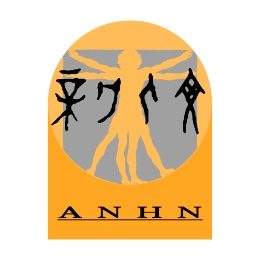
Asian New Humanities Network
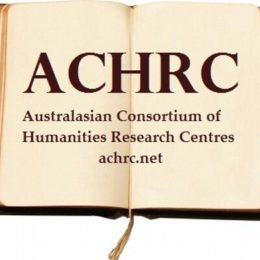
Australian Consortium of Humanities Research Centres

centerNet

Central New York Humanities Corridor

Chiang Ching-kuo Foundation for International Scholarly Exchange

Consortium for the Humanities and the Arts, South-East England
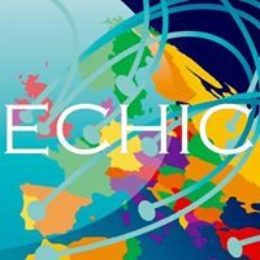
European Consortium of Humanities Institutes and Centres

Fondation RFIEA

Humanities Without Walls

International Council for Philosophy and Human Sciences
National Humanities Alliance
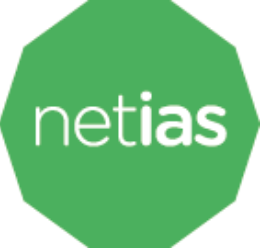
NetIAS
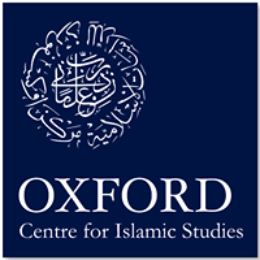
Oxford Centre for Islamic Studies
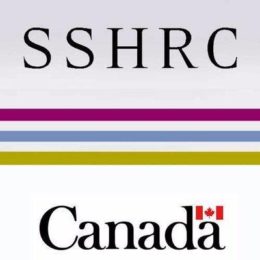
Social Sciences and Humanities Research Council of Canada
American Council of Learned Societies
Since its founding in 1919, the American Council of Learned Societies (ACLS) has provided the humanities and related social sciences with leadership, opportunities for innovation, and national and international representation. A private, nonprofit federation of 74 national scholarly organizations, ACLS is the preeminent representative of American scholarship in the humanities and related social sciences. Advancing scholarship by awarding fellowships and strengthening relations among learned societies is central to the Council’s work. Other activities include support for scholarly conferences, reference works, and scholarly communication innovations. CHCI is a member of ACLS.
Asian New Humanities Network
Established in 2004, Asian New Humanities Net serves as a regional network for the sharing of resources of humanities in Asia with the purpose of enhancing excellence in the humanities through the promotion of cooperation among Asian universities and research institutes. ANHN has successfully held eight meetings.
Australian Consortium of Humanities Research Centres
The Australian Consortium of Humanities Research Centres (ACHRC) is a network for groups engaged in Humanities-based research. Our aim is to connect Humanities researchers and centres, both within the Australasian region and internationally, and to promote relationships with cultural institutions and sector representative bodies in the wider community. We provide a virtual and physical hub for information about research opportunities and events, and seek to strengthen the public profile of research in the Humanities.
centerNet
centerNet is an international network of digital humanities centers formed for cooperative and collaborative action that will benefit digital humanities and allied fields in general, and centers as humanities cyber infrastructure in particular.
Central New York Humanities Corridor
The Central New York Humanities Corridor brings together Syracuse University, Cornell University, the University of Rochester, as well the schools of the New York Six Liberal Arts Consortium in seven different areas of research and humanistic inquiry. Each institution brings a vibrant and distinguished humanistic scholarly tradition to the collective work of the CNY Humanities Corridor. In the aggregate, the Corridor’s programs bolster the relationships, productivity, and reciprocity common to the region’s humanities community, as well as heightened visibility, enhancing public engagement in its activities. The initiative is today regarded as a highly visible scholarly presence in the region, if not nationally, as a new model of collaboration and resource-sharing that can also be adapted to other regions and inter-university partnerships.
Chiang Ching-kuo Foundation for International Scholarly Exchange
The Chiang Ching-kuo Foundation for International Scholarly Exchange is a nonprofit organization headquartered n Taipei, the capital of the Republic of China (ROC) on Taiwan. It also maintains a regional office in McLean, Viriginia near Washington, D.C. The Foundaiton was established in 1989 in honor of the late President Chiang Ching-kuo and the political reforms that he proposed, policies that helped accelerate the process of democratization in Taiwan, at the suggestion of a group of professors of Chinese descent at major American universities who wrote to him in 1987. They suggested the establishment of a foundation for international scholarly exchange to support and promote the understanding of Chinese culture and society overseas. President Chiang Ching-kuo accepted the recommendation and instructed relevant government officials to study the ways and means for its implementation. After his death in 1988, the Foundation was organized and named in his honor under the Ministry of Education’s supervision.
The Foundation’s original endowment comes from two sectors, public and private. 53 million US dollars was originally allocated by the ROC Ministry of Education, and 33 million US dollars came from private donors. The operational funds of the Foundation derive from the interest generated by this endowment.
Consortium for the Humanities and the Arts, South-East England
CHASE engages collaborative research activity across 9 institutions: University of East Anglia; University of Essex; University of Kent; University of Sussex; Open University; Courtauld Institute of Art; Goldsmiths, University of London; Birkbeck, University of London; and School of Oriental and African Studies, University of London. Established as an Arts and Humanities Research Council Doctoral Training Partnership in October 2013, the Consortium is building a distinctive network of partnerships with new and established organizations in the creative and public sectors.
European Consortium of Humanities Institutes and Centres
The European Consortium of Humanities Institutes and Centres (ECHIC) will pursue a threefold purpose:
- To speak up on behalf of members in dialogues with ESF, EU and other funding and policy-making bodies to canvass the need for humanities research; to be able to speak on behalf of the humanities and develop a language for the (position of) humanities institutes in European universities today.
- To organize an annual humanities conference at a member institution, which would involve all the main partners, including funding and policy-making bodies at the European and the national levels.
- To establish a network across the EU to lobby for the humanities in Europe today; to prepare collaborative projects and activities and set up an effective networking system with other international networks in the humanities, such as CHCI and others.
Fondation RFIEA
The Network of French Institutes for Advanced Study (RFIEA) was established in March 2007 as one of the thirteen Thematic Networks for Advanced Study (RTRA) created by the Research Act of April 2006 This thematic network is unique in the area of the humanities and social sciences. In a context in which research is undergoing profound change, France has taken the decision to set up Institutes for Advanced Study (IAS)—institutions that have proved themselves in Europe and abroad—and has opted to link up the four newly created institutes located in several French major cities in a network: the Collegium de Lyon, the Mediterranean Institute for Advanced Research of Marseille, the Nantes Institute for Advanced Study and the Institute for Advanced Study, Paris.
The RFIEA was established by law in the form of a foundation for scientific co-operation officially recognized as serving the public interest. The Foundation received a patrimonial grant from the Ministry of Higher Education and Research amounting to €13.5 million, to which is added the contributions of its five founding institutions. The Board of Trustees of the RFIEA brings together some of the most important actors in the humanities and social sciences in France: the National Centre for Scientific Research (CNRS), the École normale supérieure Lettres et sciences humaines (ENS LSH), the School for Advanced Social Science Study (EHESS), the École normale supérieure (ENS), the Foundation Maison des sciences de l’homme (FMSH), and the universities and research centres in the Rhône-Alpes and Aix-Marseille regions and in Nantes. Through its four constituent institutes, the RFIEA brings together eight universities, 12 large advanced teaching and research institutions and 57 research units linked to the IAS.
Humanities Without Walls
The large-scale collaboration constituted in the Humanities Without Walls (HWW) consortium and its initiatives makes possible many innovative and experimental objectives.
- Operating at the scale of 15 large institutions allows HWW to magnify the impact of experiments in pedagogy and in multi-institutional collaborative research in the humanities.
- By distributing risks, HWW permits a degree of experimentation and innovation that no single institution might be willing to risk on its own.
- Leveraging the strengths and resources of the constituent universities affords HWW the ability to try newly developed research questions and methods that are not feasibly tested on a single campus.
- HWW, in collaboration with the Chicago Humanities Festival, is exploring and fostering career diversity in graduate education. Through a series of predoctoral summer workshops HWW is creating a new culture for graduate education that simultaneously seeks to advance the public profile of the humanities nationwide.
- HWW continues to engage with the Predoctoral Fellows after their participation in the summer workshops in order to push innovations in graduate educational culture back into various disciplinary, departmental, and campus ecosystems as part of a broader attempt to reshape higher education.
- By including graduate students as full research participants in its funded collaborative research HWW deliberately encourages the professional development of graduate students for careers inside and outside of the academy.
- The unprecedented scale of HWW and its initiatives increases the visibility of the humanities, by creating opportunities for outcomes and products that will significantly highlight the vibrant cultures of humanities scholarship on each campus and throughout the consortium.
- By supporting scholarly collaborations that leverage multi-institutional resources, HWW seeks to create new possibilities for externally funded research through collaborations.
- Working together, the HWW partners comprise a single “voice” that can advocate for humanities-related issues, representing the interests of 15 major research institutions and beyond.
International Council for Philosophy and Human Sciences
The International Council for Philosophy and Human Sciences (CIPSH) is a non-governmental organization within UNESCO, which federates hundreds of different learned societies in the field of philosophy, human sciences and related subjects.
CIPSH coordinates the international works and researches carried out by a huge constellation of centers and networks of scholars. It favors the exchange of knowledge among faraway scholars and fosters the international circulation of scholars, in order to improve the communication among specialists from different disciplines, enforce a better knowledge of cultures and of the different social, individual and collective behaviors and bring to the fore the richness of each culture and their fruitful diversity.
National Humanities Alliance
Founded in 1981, the National Humanities Alliance (NHA) is an advocacy coalition dedicated to advancing humanities education, research, preservation, and public programs. NHA is supported by approximately 200 national, state, and local member organizations, including: scholarly and professional associations; higher education associations; organizations of museums, libraries, historical societies and state humanities councils; university-based and independent humanities research centers; and colleges and universities. It is the only organization that brings together the US humanities community as a whole.
What we do:
Cultivate support for humanities funding in the executive and legislative branches of the federal government;
Advocate for policies that advance humanities research, programming, preservation, and teaching;
Convene our members, government officials, and policy experts to develop policy initiatives; and
Promote engagement with and appreciation for the humanities among the general public.
Based in Washington, D.C., the Alliance is a 501(c)(4) non-profit association and is strictly nonpartisan. Membership in the National Humanities Alliance (NHA) is open to 501(c)(3) organizations that are involved in the humanities.
NetIAS
The Network brings together 21 Institutes for Advanced Study across Europe. It was created in 2004 to stimulate a dialogue on IAS practices and possible forms of cooperation. Within the whole network, more than 500 researchers are hosted every year for up to one full academic year.
NetIAS members share the objective of creating international and multidisciplinary learning communities. This openness and the freedom the fellows enjoy for their researches serve to promote scientific and intellectual exchanges. The fellows are released from their usual teaching and research obligations and pursue their project in a privileged environment, that stimulates reflexion and innovation. IAS tend to break from the intellectual routines, thus fostering the emergence of new perspectives, approaches and paradigms.
While sharing a common vision concerning the freedom of research, and representing an alternative to the national institutions of higher education and research, the IAS offer a considerable diversity in terms of fellowship conditions: individual or collective fellowships; invitations or open calls for applications; one academic year residencies or shorter periods. Furthermore, their scientific policies are characterized by different thematic or geographical orientations, a diverse openness to natural and hard sciences, or a special commitment to promoting early career researchers.
Oxford Centre for Islamic Studies
The Oxford Centre for Islamic Studies is a Recognized Independent Centre of the University of Oxford. It provides a meeting point between the Islamic and Western worlds of learning. Through good scholarship it promotes a more informed understanding of Islam - its culture and civilisation.
The Centre is committed to the advancement of academic excellence in teaching, research and publication. Its outreach activities sustain dialogue and promote mutual understanding at national and international levels.
Social Sciences and Humanities Research Council of Canada
The Social Sciences and Humanities Research Council of Canada is the federal research funding agency that promotes and supports postsecondary-based research and training in the humanities and social sciences. By focusing on developing talent, generating Insights and forging connections across campuses and communities, SSHRC strategically supports world-leading initiatives that reflect a commitment to ensuring a better future for Canada and the world.